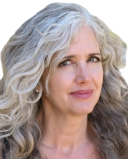Anxiety
How to Manage Breast Cancer Screening/Diagnosis Anxiety
Here's how to reduce your worry over abnormal mammogram findings and call backs.
Posted March 1, 2018 Reviewed by Jessica Schrader
In 2015, after a particularly stressful breast cancer screening/diagnostic experience, I wrote a post called “Worry About Mammograms, Callbacks, and Biopsies.” Puzzled by the anxiety I experienced and my difficulties managing it, I turned to research studies in my search for understanding. What I found was just how normal my anxiety was, especially given my family history of invasive breast cancer, and my own experience with high-grade DCIS, and multiple biopsies. A long wait for a second screening after an initial screening, and yet another long wait for a biopsy after that, gave my anxiety time to take root and grow. I found that this too was normal—such waits increase breast cancer screening anxiety.
Lately, I’ve been thinking about how to better manage breast cancer screening and diagnostic anxiety. Not only is it past time for me to have a mammogram, but I also receive messages from readers experiencing this type of anxiety and wondering how to get through it. I turned to the research literature for tested strategies but I could not find any. I did find that anxiety is increasingly recognized as a potential harm of breast cancer screening and diagnostics. False positives (when a screening raises the suspicion for breast cancer and leads to further testing, but does not result in a cancer diagnosis) are common, which means that many women go through unnecessary anxiety, discomfort, and financial expense.
I don’t think that most radiologists do enough to address breast cancer screening anxiety. Hunkered down in front of computers displaying radiological results, they have little patient contact and tend to be perfunctory when they do. Their distance from patients (and perhaps the fact that most are men who have not experienced breast cancer screening) reduces their empathy and allows them to minimize or ignore our anxiety. Although aware that breast cancer screening anxiety is a “thing,” they see false positives and our anxiety as costs outweighed by the benefits of saving some lives. They don’t think about changes they could make in their practices that might reduce anxiety (like short waiting periods for follow-up screenings and biopsies, especially for women at-risk for BC screening anxiety). They don't think about how they might better frame additional testing to patients so that their anxiety is reduced, yet they remain motivated to follow through. I wish they did so that looking after our physical health would be less likely to compromise our mental health.
So I guess, to paraphrase singer-songwriter Annie Lenox, sisters have to do it for themselves. As one sister to another, here are some strategies I plan to use to manage my breast cancer screening anxiety the next time I get the dreaded callback or biopsy recommendation. I don't know for sure they will work for you, but I share them in the hope that might be useful to you or someone you love.
Cognitive Behavior Therapy Strategies
Most psychologists treat anxiety with cognitive-behavior therapy strategies. The general idea is to target your anxiety-producing thoughts with their rational counterparts. Many of us unnecessarily “catastrophize” and have ourselves sick, bald, and leaving behind loved ones before we’ve even had our tests or received our test results. We start preparing for an ordeal that may not even come to pass. As my grandmother Daisy would say, we “borrow trouble.” We can use CBT techniques to reduce our anxiety. For instance, when we feel agitated we can remind ourselves:
- More women have false positives than not, so it is quite likely that I don’t have cancer.
- False positives are more common in women like me who have dense breasts, a history of breast biopsies, and a familial history of breast cancer.
- If I have regular mammograms over a 10-year period, it is likely I will experience a false positive at least once.
- Only 12.4 percent of American women develop breast cancer.
- Only .5 percent of women called back after their initial screening for further testing will be found to have cancer.
- My anxiety is worth the peace of mind I will experience if it’s nothing.
- I am choosing breast cancer screening/diagnostics despite the stress so that if I do have cancer, it will be detected early when treatment is not as big a deal.
- If it is cancer, it is not necessarily a death sentence. The five-year survival rate is almost 90 percent. It’s estimated that about 19 percent of breast cancers would never become “clinically significant” if left untreated.
- I know more women that have survived breast cancer than have died from it.
- If it is breast cancer, it is likely it can be treated without chemotherapy, especially if it is found early.
- Despite what I’ve seen on TV and in movies, breast cancer treatment (even chemo) would not necessarily make me extremely ill and bald, only to die anyway.
- Whatever the outcome, I can handle it as I have so many other difficult things. If I handled [insert life challenge], I can handle breast cancer.
- Like other challenges I have confronted, if there is a challenge to be faced, it will make me stronger and more resilient.
- This experience is a reminder of my mortality and what’s important to me, and in that way it's an opportunity for personal growth.
- This experience reminds me that I have friends and family that love me and will be there for me if I need them.
If you experience breast cancer screening anxiety, you may want to use these statements to keep things in perspective or modify this list to address other extreme thoughts aggravating your distress. If you are worried about a loved one, you can adapt this list to reduce your anxiety.
Other Strategies
- Reduce your anxiety by using meditation, mindfulness, or relaxation techniques (there are CDs and apps for that!).
- Stay busy—distraction helps you get away from focusing on your fears.
- At night, drink chamomile tea, or take melatonin, these are natural sedatives.
- If despite your best efforts to control it, your anxiety is unbearable, ask your physician for a short course of an anti-anxiety medication.
- Visit a therapist.
- Insist on a short wait if you receive a “call-back” for additional screening, and request that the radiologist give you results before you leave. If they can’t do that, find another radiology practice that will. If enough of us demand this, things will change.
- Seek a second opinion if you are unsure for the need for additional testing. While one radiologist might recommend a biopsy, another might make the case for “active surveillance.” You can then make a choice based on what feels right to you.
- Seek social support, share your anxiety with close friends and family, and reach out to women you know that have been through this experience.
Final Thoughts
Breast cancer screenings and diagnostics are stressful, especially when they lead to callbacks and biopsies. That anxiety doesn’t always go “poof” when you receive the news that you are cancer-free. It can take a little time to get over these testing scares.
Sometimes considering your own life and death as you waited for testing and results brings up things that you might need to process with a therapist. These can range from realizing/confronting your mortality and all that entails, to bringing up some long-buried grief about someone you lost due to cancer, to realizing that you want to live your life a bit differently now that you have another shot at it, to finding out that a partner will not be there for you when you really need them. There might be some change that you need to make in your life and your anxiety is your unconscious self’s way of trying to help you take advantage of something you learned as you considered having a serious illness or death.
Hang in there, sisters.
Thank you to the readers that reached out to me about their experiences. This post was shaped by what they shared with me.
References
Hersch, J., Barratt, A., Jansen, J., Irwig, L., McGeechan, K., Jacklyn, G., ... & McCaffery, K. 2015. Use of a decision aid including information on overdetection to support informed choice about breast cancer screening: A randomised controlled trial. The Lancet, 385(9978), 1642-1652.
National Cancer Institute. Cancer stat facts: Female breast cancer https://seer.cancer.gov/statfacts/html/breast.html. Retrieved on February 28, 2018
Nelson, H. D., Pappas, M., Cantor, A., Griffin, J., Daeges, M., & Humphrey, L. 2016. Harms of breast cancer screening: systematic review to update the 2009 US Preventive Services Task Force Recommendation. Annals of Internal Medicine, 164(4), 256-267.
Pace, L. E., & Keating, N. L. 2014. A systematic assessment of benefits and risks to guide breast cancer screening decisions. JAMA, 311(13), 1327-1335.
Sasieni, P. D., Smith, R. A., & Duffy, S. W. 2015. Informed decision-making and breast cancer screening. Journal of Medical Screening, 22(4).
Wardle, J., Robb, K., Vernon, S., & Waller, J. 2014. Screening for prevention and early diagnosis of cancer. American Psychologist, 70, 119-129.


